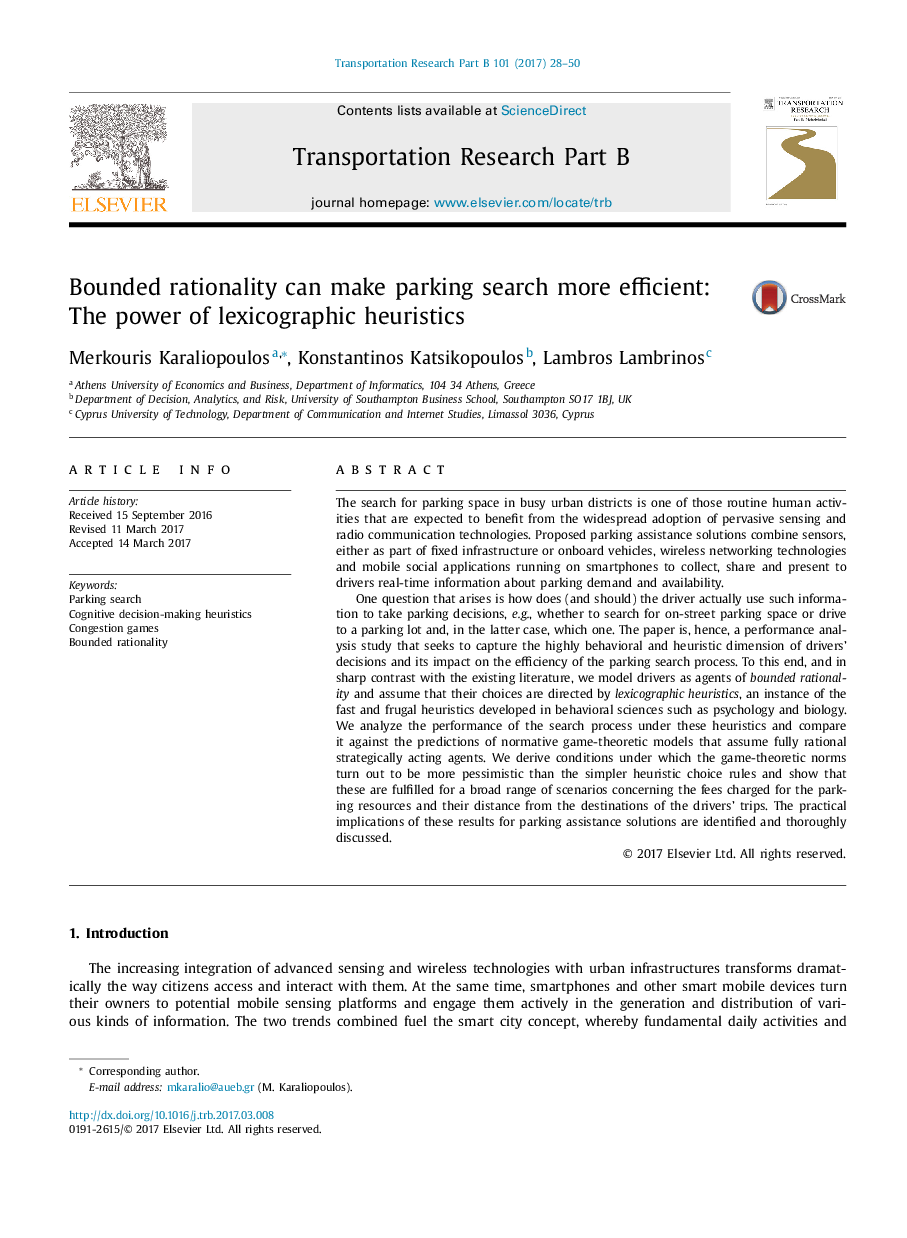ترجمه فارسی عنوان مقاله
عقلانیت محدود می تواند جستجو در پارکینگ را موثرتر کند: قدرت اکتشافی زبانشناسی
عنوان انگلیسی
Bounded rationality can make parking search more efficient: The power of lexicographic heuristics
| کد مقاله | سال انتشار | تعداد صفحات مقاله انگلیسی |
|---|---|---|
| 153791 | 2017 | 23 صفحه PDF |
منبع

Publisher : Elsevier - Science Direct (الزویر - ساینس دایرکت)
Journal : Transportation Research Part B: Methodological, Volume 101, July 2017, Pages 28-50
ترجمه کلمات کلیدی
جستجوی پارکینگ اکتشافی تصمیم گیری شناختی، بازی های احتمالی عقلانیت محدود،
کلمات کلیدی انگلیسی
Parking search; Cognitive decision-making heuristics; Congestion games; Bounded rationality;

